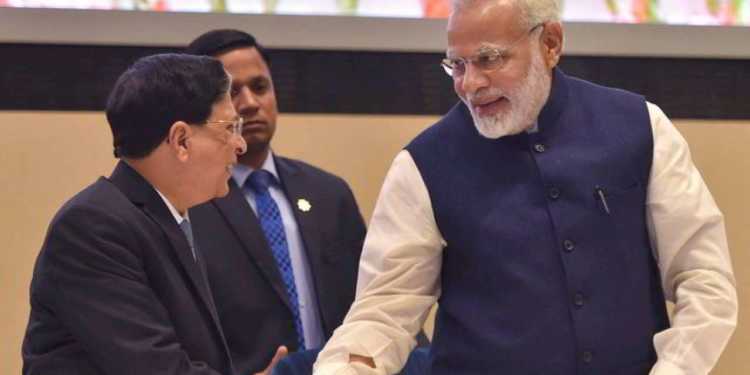Accountability is the sine qua non of any vibrant democracy. Every institution possessing and exercising the powers enshrined in the constitution and other laws must be accountable at large. Judiciary is no exception. The courts perform the critical function of dispensing justice. However, it is appalling that even after more than 70 years of independence, we do not have any legislation dealing with accountability of the judiciary.
In the recent past, the allegations of blatant nepotism within the judiciary have been the most worrying trend. Recently, the centre disclosed nepotism in the list of candidates proposed to be made judges of the Allahabad High Court. The centre mentioned relationship of at least 11 of the 34 candidates with sitting and retired Supreme Court and High Court judges even as the list was forwarded to the apex court collegium. However, this is not the first time that allegations of nepotism within the judiciary have come out in the open. When the constitutional validity of NJAC Act was being examined by the Supreme Court, a Mumbai based lawyer had carried out a study stating that around 50% of the judges of high courts and 33% judges in the Supreme Court are family members of those in “higher echelons of judiciary”. This leads to a general perception that there is no level playing field. While first generation lawyers have a hard time at the bar, those related to senior lawyers and judges have easy access to career advancement.
Similar have been the concerns regarding allegations of unequal treatment meted out to different classes of litigants. The arrest of a few so called Human Rights activists after recovery of some evidence that they were conspiring and feeding Maoists for assassination of prime minister Modi. Those representing these anti-social elements pleaded before the apex court immediately. After a midnight hearing, the police custody was turned into house arrest. The question that, therefore, arises is why an exception was made to the provisions of the code of criminal procedure. In an ideal situation, the Magistrate is empowered to deal with such matters but an exception was surprisingly made for the so called intellectuals. It must not be forgotten that arbitrariness and equality can never go hand in hand. And such uncalled for special treatment does amount to arbitrariness. Moreover, there has been an apprehension that “uncle judges” of some lawyers practising within the high courts lead to biased orders. This is in grave violation of the principles of natural justice, especially the principle of nemo judex causa sua, i.e., no one should be a judge in his own cause (a rule to eliminate personal biases of the judges).
The principles underlying the judicial standards and accountability bill, 2010 was a bold attempt at finding a solution to the above-mentioned issues of nepotism in appointments, verdicts, etc. Its provisions require disclosure of their assets by judges, lays down judicial standards, and establishes processes for removal of judges of the Supreme Court and High Courts. Therefore, a new process for removal was to be established overriding the Judges (Inquiry) Act, 1968. It also provides a much needed procedure for confidential complaints and inquires against judges. It also penalizes those making frivolous complaints.
The issues of nepotism in appointments of judges and verdicts are further aggravated by the current situation where judges themselves appoint judges under the collegium system. The NJAC Act has already been held ultra vires the Constitution of India on the ground that it impinges upon the independence of judiciary. Moreover, an All India Judicial Services (AIJS) also seems nowhere in sight. It was expected to end nepotism in appointment by virtue of a unified cadre of judges. Therefore, as of now the judicial standards and accountability bill seems to be the only solution in sight for ensuring accountability in the judiciary.























